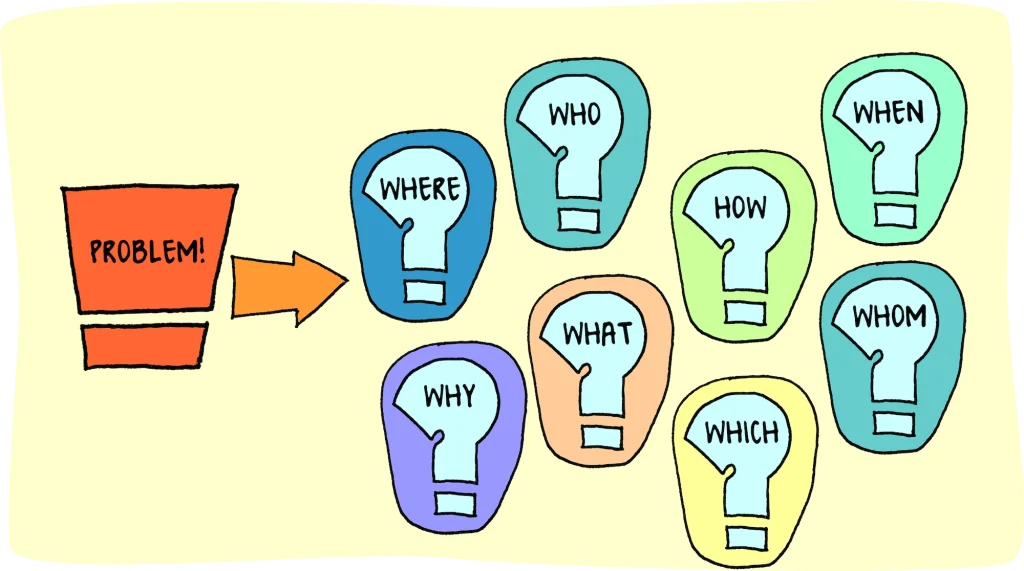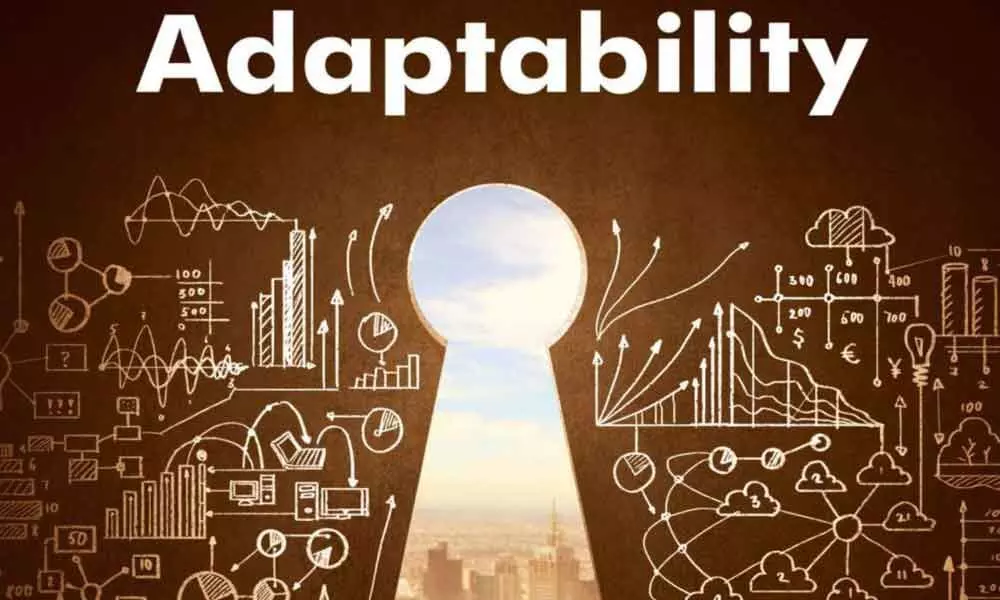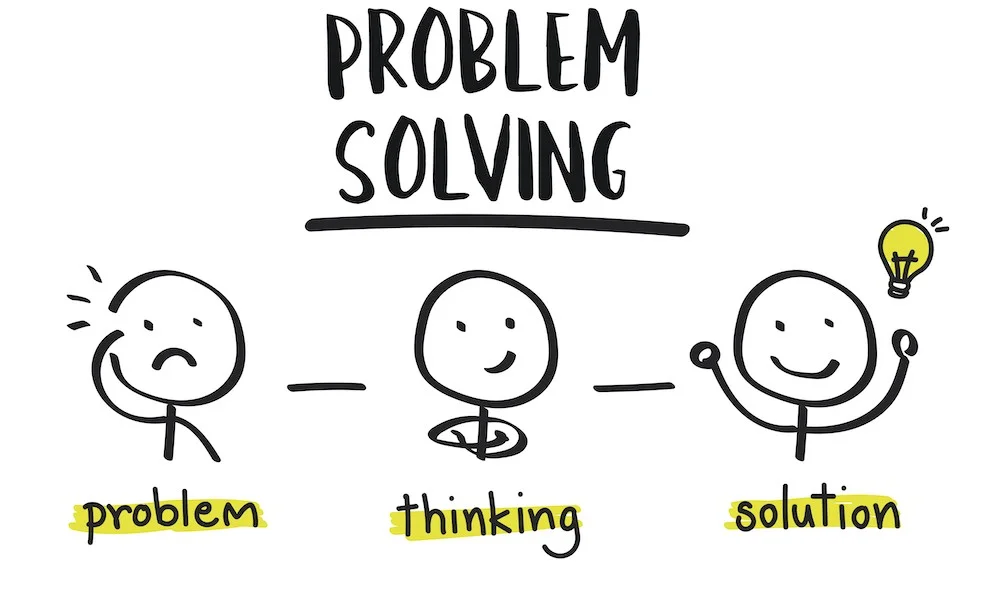Thinking about the ability to recognize problems, come up with alternatives and execute such solutions as would be most efficient. Such skills are fundamental in several areas of life, especially in professional setups which constantly face challenges and obstacles.
Important among these problem-solving skills include creative thinking, decision making capabilities, analytics capacities and critical thinking.
Why Is This Skill Important?
Problem-solving skills are important because it enables individuals to handle sudden obstacles and complex situations efficiently. These skills assist in making informed decisions, streamlining processes and achieving goals.
In the workplace, strong problem-solving Skills lead to increased productivity, better team dynamics and a competitive edge in the job market.
Showcase New Skills
This shows that you are always growing personally as well as professionally as you keep updating your resume with new problem-solving skills. Adaptable candidates who can bring fresh ideas or solutions into their teams are preferred by potential employers.
Bringing out these competences can transform your career significantly.
Benefits of Problem-Solving Skills
- Improved Decision-Making: Developing effective problem solving enhances your decision-making capacity through assessment of all options available before settling on a particular one as being the best approach.
- Increased Efficiency: This way you can identify issues immediately they arise reducing cycle times which boosts overall efficiency at work place.
- Better Critical Thinking: We become better at analyzing things critically when we engage in these activities hence our ability to make some changes towards what might give us more desirable results tend to improve.
- Greater Adaptability: With a good number of problem-solving skills we will find ourselves easily adapting when circumstances change while not shying away from dealing with any other emerging ones confidently too.
- Boosted Confidence: Solving problems successfully makes you feel more confident and shows that you can deal with tough situations.
- Better Teamwork: By working together to solve issues, effective problem solving can improve teamwork and enhance communication within a group.
- Promotion Opportunities: Strong problem-solving skills are highly sought after by employers, making it easier for one to secure a try at what they want from their employment place.
- Enhanced Creativity: Being involved in problem-solving brings about new ideas thereby promoting creativity and leading to the development of unique solutions.
- Reduced Stress: When we have the know how to handle problems efficiently, stress associated with unresolved issues is minimized.
- Personal Growth: Developing your problem-solving abilities all the time contributes to personal development and lifelong learning.
Problem-Solving Skills Examples
Research
The first step of any problem-solving process is researching. Research entails an in-depth understanding of a given issue through gathering information, evaluating this data and synthesizing it. Good research skills help you identify the root causes of issues and develop well-informed solutions.
This may involve reading academic journals, analyzing case studies, running surveys or consulting expert opinions. A combination of these sources will provide you with wider perspective on the issue under consideration which is important for an efficient approach towards solving the same.
Moreover, thorough research ensures that your solutions are evidence-based and follow best practices hence increasing effectiveness.

Analysis
To break down complicated problems into simpler ones, you need to have analytical skills. This will involve going through data, finding relationships between them and then making inferences about the underlying aspects.
It is also important that one’s analysis be characterized by critical thinking and attention to details so as to understand a problem better, dissect it systematically and come up with informed strategies. A
n example of this would be an individual who analyzes financial accounts, customer feedback or market trends in order to identify what went wrong.
Decision-making
Decision-making forms part of problem-solving where one assesses several options before choosing the most appropriate action. For instance, it requires weighing pros and cons of different solutions, considering potential risks as well as predicting how your decisions may affect your organization.
A good decision is one that combines intuition based on past experiences with logical analysis which takes account of all relevant factors affecting the company. To some extent, this means gathering information from all sources including stakeholder meetings in order to predict long term effects of decisions made now.
Furthermore decision makers must be open-minded enough to amend their strategies as result of new inputs hence modifying original solutions without compromising effectiveness.
Communication
Effective communication entails being able to express problems clearly; share ideas both upwards and downwards and work effectively within teams when solving problems together. In other words clear concise communication allows everyone else on the team understand exactly what you mean when discussing your ideas on possible ways for solving the stated problem at hand .
Here in lies active listening; constructive criticism giving; open discussions facilitating etcetera. Effective communicators are those who manage to create mutually inclusive environments thereby bridging gaps between several multifaceted angles of reasoning from which inventive solutions arise at the end .
Moreover good presentation skills play a significant role in gaining support from stakeholders so that they can commit themselves towards implementing whatever you suggest.

Dependability
Dependability is a fundamental problem solving skill which calls for reliability, consistency and trust. This involves taking responsibility for the identification and resolution of problems so as to ensure that tasks are completed effectively and efficiently. Through dependability, it becomes apparent to colleagues that they can rely on you when it comes to honouring commitments hence producing excellent results .
In addition being someone who is always looking out for any potentialities of issues turning into significant challenges; thus, before they become major problems ,someone should be able to anticipate them beforehand hence coming up with the best approach.
How to Include Problem-Solving Skills in a Job Application
On a Resume
To increase your chances of getting hired, include problem-solving skills on your resume. Begin by listing some instances where you applied those skills successfully. If possible use numbers to define specific accomplishments rather than just saying “solved customer issues” or “customer complaints”.
Furthermore, enhance your CV with action words such as analyzed, developed implemented improved etcetera indicating your abilities in solving problems.
In a Cover Letter or an Interview
Optimize your cover letter by providing more information on how you solve problems. Do not miss the opportunity to elaborate on this in your cover letter. It will tell a story about how you faced certain challenges and overcame them successfully.
Such an approach enables employers ascertain that you apply your problem solving skills practically in real life situations. Are you ready for further explanations about these examples during the interview? In order to make it clear, use STAR (Situation, Task, Action, Result).
Forage Resume Writing Masterclass
Although they might be good at defining problem-solving abilities well enough preparing students for writing resumes is essential for articulating them clearly. Just as writing masterclasses offered by Forage teach people how to create powerful curricula vitae; they can also help trainees become better at pointing out their creative thinking skills while drafting such papers as well.
Hence, one’s resume will become attractive among others when he or she learns how to compose it with remarkable details that describe problem-solving experiences.
How to Improve Problem-Solving Skills
Learn How to Identify Problems
The first thing for developing strong problem solving skills is the ability to accurately identify what constitutes a problem. Seeing is the most important aspect of accurate observation and thinking. Take notice of persistent problems or areas where processes are flawed. Start asking questions that probe deeply into issues so as to understand their root causes.
You can handle a problem well if you understand it better. Routinely doing this activity will help prevent future incidents from escalating into full-blown problems and results in proactive problem management.

Think Digitally
In today’s technology focused world, digital thinking is important. Gain insight on software and other digital tools you can use when solving problems such as project management platforms, data analysis programs, etc… They allow you collect information and analyze trends towards making informed decisions.
It is because of your digital literacy that you can encounter untried challenges for creative solutions. Besides, be up-to-date with technology if you want your problem-solving skills to be up-todate too through learning new tools; keeping them alive at all times.
Collaborate
Collaboration is one way through which problem-solving skills are developed by people. Teamwork introduces diversity in thoughts and ideas thereby leading to more innovative answers than an individual would have thought alone. Brainstorming sessions should therefore involve group contributions while feedbacks from different quarters should be given due considerations during team work.
Every person has to listen keenly and speak clearly so that nobody gets confused about what they are doing together. Thus creating such environment contributes much towards efficient solution of problems by saving time spent on their resolution as well as building stronger teams within the organization alike.
Adapt
To effectively solve problems, one must be adaptable. Flexibility is important, and you must be willing for the changes in your approach when necessary. These problems can evolve and the best solutions may need adjustment along the way. Develop a change-friendly mentality where you expect things to be uncertain.
Practice resilience and improve on adaptability by learning from past experiences. This skill helps maintain calmness during tough times and create alternatives after initial plans fail, making it possible to move ahead even in challenging conditions.

Put Yourself in the Middle of Tough Moments
Taking part in difficult situations can help enhance your problem-solving capacity greatly. Seek out challenging tasks or projects that take you outside your comfort zone. You become able to understand how you can maneuver through complex issues practically because of this hands-on experience.
Reflect on these experiences to identify what worked well and what could have been done better next time round. By deliberately placing yourself in tough moments, you build confidence and competence in problem solving, making you better prepared for future challenges.
Career Aptitude Test
These tools are designed to make people understand their individual strengths, interests as well as preferences so that they can find suitable career paths for themselves. They also evaluate different skills, personality traits as well as inclinations indicating potential job roles that would match an individual’s unique profile.
Students, career changers and individuals who would like clarity on their professional direction should especially use them.
Analytical
Analytical skills are crucial for roles requiring critical thinking, data interpretation and problem solving technique among other attributes . In this case a test will outline your level of ability to determine patterns from information provided , make rational decisions based on such patterns as well as come up with ideas that will help overcome obstacles.
Some professions such as data analyst , financial advisor , scientist or engineer require strong analytical abilities . The test might have sections which assess whether or not someone can interpret charts, graphs and complicated information thus giving a clear image of someone’s analytical strengths.
Creative
Innovation and unique approaches to problem-solving are fostered by originality in various industries. A career aptitude test measures your creativity skill through activities which demand non-conventional thoughts, idea generation and artistic expression.
Occupations in design , advertising writing and performing arts often require high level of creativity. For instance a test may involve brainstorming sessions , story telling or visual design tasks thus enabling a person to know how creative he can be at work.
Conclusion
Career aptitude tests have immense influence on self -discovery as well as career planning . Such examinations provide an insight into potential career paths that one can take depending on their analytical skills and creativity.
Whether you’re starting your career journey or considering a change, taking a career aptitude test can help guide you toward fulfilling and suitable professional opportunities.
FAQs
What are problem-solving skills?
These are the skills that incorporate recognizing, creating solutions for them as well as implementing the solutions effectively.
Why are problem solving skills important?
These skills are very useful in handling problems, making informed decisions and achieving set goals both personally and professionally.
How can I improve my problem solving skills?
Identify accurately, think digitally, collaborate from different sources, stay adaptable and challenge yourself with difficult assignments to become smarter at fixing things.
How do I showcase problem solving skills on my resume?
Use action verbs while describing specific cases where you have resolved problems successfully by providing measurable achievements.
What role does communication play in problem solving?
Effective communication ensures that ideas, solutions as well as feedbacks are all conveyed clearly during collaboration hence successful resolution of problems is made possible

Russell F. Jones, holding a Master in psychology from the University of Florida. He writes for Smart Parent Solutions, offering practical advice on parenting and child development. His engaging content helps parents navigate family life with confidence and ease. Russell enjoys sharing his knowledge and spending quality time with his family.
